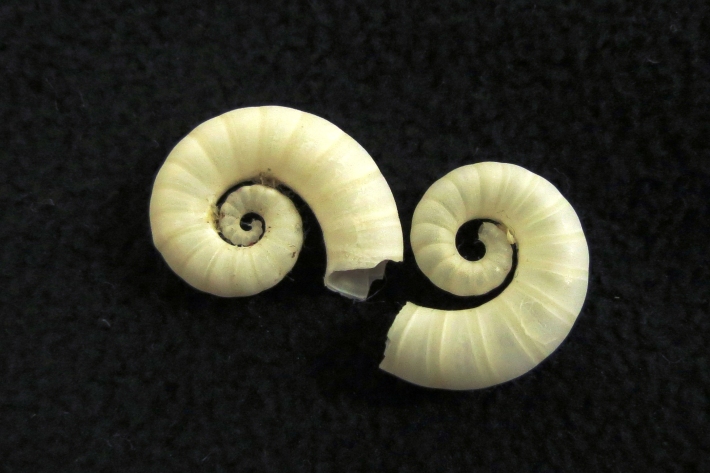-

Critter of the week: Spirula spirula
The Ram’s Horn squid (Spirula spirula) is a mesopelagic species, meaning that it lives in the mid-water column. It typically lives in dark depths of 500-1000 m in the day and migrates up to the shallows of 300 m at night. -

This week's grumpy crab Critter is the New Zealand vent crab Gandalfus puia
We would probably be grumpy too if we didn’t have any eyes, however, in the deep sea, where there is very little light many organisms have lost the ability to see altogether. -

Critter of the Week: the lace coral Bountyella morgani
This week’s critter will forever have a special link with NIWA CEO John Morgan. -

Critter of the Week : the venus flower baskets Euplectellidae
An animal entirely made out of glass? We don’t have to go to an alien world for this but just have to look deep into our oceans. -

Critter of the Week: a “Brittle Star Village” on Admiralty Seamount, Antarctica
This long spiny-armed brittle star is named Ophiocamax gigas Koehler, 1900, and was collected from 700 m deep on the Admiralty Seamount, just north of the Ross Sea, Antarctica in 2008. -

This week's Critter recaps the Antarctic sea pig Protelpidia murrayi
The Antarctic ‘sea pig’ (Protelpidia murrayi) is a type of sea cucumber that can be found roaming the muddy seafloor in the Ross Sea. -

Critter of the Week: the king of the ocean, the king crab Lithodes aotearoa.
Our largest New Zealand king crab is something to behold when it comes on deck. -

Critter of the Week, Caryophyllia – cup corals
This week's Critter of the Week (number 142) introduces the delicate cup coral Caryophyllia. -

New fault found in Wellington Harbour
News article10 October 2014NIWA scientists have found a new active fault in Wellington Harbour after analysing data from a recent marine survey. -

Critter of the Week: the ancient group of the lamp shells, or brachiopods
Brachiopods might look like a mollusc, but they are actually more closely related to bryozoans (lace corals). -

Critter of the Week - The Spiny Murex - Poirieria zelandica
You might occasionally come across this long-spined beauty, the spiny murex or Poirieria zelandica, washed up at the beach, arguably one of our most impressive shells -

Critter of the Week: Ancient meadows of sea lilies - Ptilocrinus amezianeae
When we for the first time surveyed the Admiralty and Scott Island seamounts to the north of the Ross Sea in 2008, we encountered striking meadows of stalked crinoids at around 600 m depth.

